Don't Just Suffer - You Can Do Something About Writer's Block! Is writer’s block a real thing? Or is it something that people have invented to account for their lack of progress as a writer? Personally, I have always thought that writer’s block was something that was invented for the script of a stage play or movie as a way of getting a character, who is an author, out from behind their desk and into the world so they could have an adventure. But was I right? As I have a bit of a background in psychology, I went looking for a psychologist who could answer this question. Sadly, there hasn’t been much research done in this area. Most commentators seem to regard writer’s block as a blockage in the creative process and the way to treat it is the same as a plumber would use to unblock a pipe. But there are a couple of bits of research that suggest this approach is wrong. This is one of the research articles I found. This is only the “abstract” for the study, but it does provide the key messages. 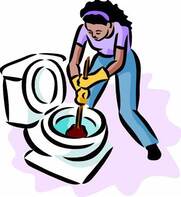 Treat it the way a plumber treats a blocked pipe! Treat it the way a plumber treats a blocked pipe! While it concludes that writer’s block is real (yes, I was wrong - who could imagine that?), it doesn’t find that the creative process itself is the cause. The likely causes are much deeper rooted than that. It could be the way sufferers were taught to write, way back when they first started school. It may be caused by external pressures such as deadlines or feelings of being controlled, or feelings of not being in control. It could even be caused by a fear of being criticised. Yes. If you are anxious about what people might think of your writing, it may prevent you from writing in the first place. 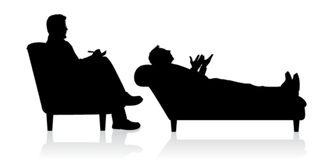 Worst case scenario - you might need therapy. Worst case scenario - you might need therapy. So, if you suffer from writer’s block it isn’t about not having a good idea for a plot, or that you can’t develop your characters, or you can’t find the right word to describe the particular sort of rain that is falling. It may be because you had an overly controlled environment when you were first learning to write your name, which has carried forward into adulthood and you now worry about what your 1st grade teacher might think of what you are now putting on paper. So, this is a psychological issue, not a creative one. To treat it, you have to identify the cause and work it out of your system, so it no longer affects your writing. In the worst case scenario it might involve therapy, but for most people it probably just means acknowledging that there is a problem and finding ways round it. Living in the present, rather than the past or the future, is a good first step.  Overly controlled environment when your were learning to write your name Overly controlled environment when your were learning to write your name Looking at social media, I have observed that anxiety about whether someone’s writing is “good enough” is a common theme. In post after post, writers are seeking affirmation that their work is of value and of a good standard. Such reassurances are given but, of course, they are meaningless if the person giving the reassurance hasn’t actually read the work itself. And I think these worried writers know this, which is why the question occurs so often. But what about deadlines and control? They are one of the causes of writer’s block that have been identified. Deadlines are particularly ironic, in that the need to meet a deadline is, potentially, the cause of it not being met. The way around that one is for the writer not to agree to unrealistic deadlines, then for them to manage their time appropriately so they are able to meet the realistic target date. The journey of a thousand miles begins with a single step and it is taking that first step that is the important part of the journey – not the final step. Take control of the process and retain that control throughout. 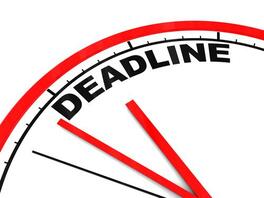 A lack of feeling of control is a major cause of stress in any environment. It has been cited as the cause for so much stress and as a trigger for depression. People who read or watch a lot of news, for example, are likely to suffer a higher level of stress because they start to worry about events that they are reading about or watching, but which aren’t within their control. Knowing that, I find it unsurprising how some of the exchanges on social media become so toxic. “Pick a side” is now the order of the day, but picking a side is likely to cause stress unless it can directly impact on the issues in question. And no, posting about an issue on social media isn’t activism. If anything, it is passivism because it doesn’t require anyone to actually do anything. If nobody has to do anything then change doesn’t happen so the feelings of lack of control are amplified, creating more stress  "WHY AREN'T YOU LISTENTING TO ME!?" "WHY AREN'T YOU LISTENTING TO ME!?" So, the stress of not being able to change someone’s mind through posting on social media comes out in the toxicity of the posts themselves. Effectively it is people screaming “Why aren’t you listening to me!” into a complete stranger’s face. If you feel stressed after being on social media, it is no surprise and the best thing you can do about it is not go on social media. But then you’ll experience FOMO* and that creates more stress. That is an extreme example, of course, but the same generic symptoms are to be found in writer’s block, with tight feelings in the chest or stomach, feelings of anxiety, insomnia, irritability, panic attacks et al caused by the feeling that the writer isn’t in control of what they are doing. BTW, you don't have to pick a side. No, really, you don't. If people try to force you to pick a side, it is for the benefit of their agenda, not yours.  You have to choose to change. You have to choose to change. But there are things that can be done to deal with that stress and by dealing with the stress, the writers can then focus on what actually matters, which is the creative process. There are a number of blogs on ways of dealing with writer’s block and they all say pretty much the same thing. So, if you’ve already read those, don’t think you’re going to find any greater enlightenment here. But if you’ve read those blogs and you’re still suffering from writer’s block, it means you haven’t heeded the messages and are still trying to find the “silver bullet”. Bad news - there isn’t one. Changing your behaviour is the only way to overcome writer’s block. And if you don’t want to change your behaviour, you’ll have to learn to live with writer’s block and being an unproductive writer. If you always do what you always did, you'll always get what you always got!" (Henry Ford). So, for those of you who want to change your behaviour, what can you do?  Stay off social media Stay off social media Stay off social media when you are trying to write. This may not be what you want to hear, but it may be what you need to hear. First of all, social media is a distraction and when you are trying to achieve anything (not just writing) you don’t need distractions. Secondly, so much that is seen on social media is negative and negativity is a great source of stress, which is the enemy of creativity. If you must have a daily fix of social media, leave it until after you have finished writing for the day. You might even treat it as a reward for a good day's work.  Get some exercise. Not only does exercise reduce stress, it also produces endorphins which make you feel better. They also stimulate mental activity. Aerobic exercise is best, but any exercise is better than none. Do something different. Instead of wrestling with the same problem over and over again, do something else. Another creative activity is good (drawing, music, cooking etc), but it doesn’t have to be. In fact, mundane, repetitious tasks leave the brain free to process other stuff. Those naff colouring books for adults that were all the rage a couple of years ago may actually be the cure for your writer’s block. But you could also try gardening, cleaning the house or washing the car.  Do something different Do something different Change your location. Many writers go to “retreats” or have a cottage in the country where they write, but it doesn’t have to be that grand (or expensive). Just taking your laptop to the coffee shop or the park can be enough of a change to take your mind off the blockage and allow ideas to flow instead. Don’t try to write your book, try to write something else instead. You’ll find thousands of writing prompts on the internet that you can use to stimulate the writing juices. Once you have started writing on an unrelated subject, it becomes much easier for the brain to stay in writing mode and allow you to move smoothly onto your book. You don’t even have to start a fresh page or open a new file. Just keep writing and edit out the irrelevant stuff (which actually got you started) afterwards. Don’t beat yourself up. You are human and suffer human frailties. If you can’t write today, there’s always tomorrow. Simply forgiving yourself is sometimes enough for your brain to say “Thank you. Now, I’ve had some thoughts about the start of chapter 15.”  Just do nothing Just do nothing Do nothing for a while – and I do mean nothing. Yes, staring off into space helps. Your brain will try to fill the gap in conscious activity and it may well fill it by giving you ideas about your plot. It’s far less stressful than pacing up and down worrying over the fact that you can’t come up with an idea. It's why we often have bright ideas while we're asleep or about to fall asleep. Cut yourself off from distractions. If you are stressed by the hubbub around you, it is harder to concentrate on what you should be doing (this applies in any workplace). If you can’t get the people out of the house, get yourself out instead. Libraries are nice quiet places to work, so take your laptop or tablet and visit yours. Change your habits. If you are struggling to write in the morning, switch to the afternoon, or the evening and vice versa. The time of day you work best is affected by your circadian rhythms so if your working times are out of synch with your “body clock” you are going to be less productive and less creative. This is hard if you have a “day job” as well as being a writer, but it may be necessary. It’s why some authors become successful only after they take the big gamble and quit their day job. (Just to be clear, we ARE NOT recommending you quit your day job) 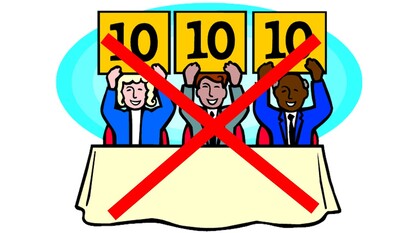 Your book doesn't have to be perfect at the first attempt. Your book doesn't have to be perfect at the first attempt. Don’t try to “binge” write. Stop writing at a point that is natural, such as the end of a paragraph, scene or chapter, rather than setting a finish time or a word count target. You’ll feel less pressure, which will allow your mind to do what you want it to and be creative. Conversely, if you are “in the zone” and the words are flowing, by all means keep going. But when you feel you need to stop, just stop. Don’t try to get the book perfect at the first attempt. Perfection comes later, once you have got the first draft written. This is another reason for not accepting deadlines. If you know you haven’t got time to do an edit later, you’re going to be too stressed to get the first draft written. Making progress on something that isn’t perfect is better than trying for perfection and not getting a single word written. So, there you have it. Writer’s block is real, but you don’t have to suffer from it. Doing something to overcome it is a choice, as is deciding not to do anything about it. But if you choose the latter course of (in)action, on your own head be it. * FOMO – Fear of missing out. The fear that while you’re not on social media you might miss the latest photo of Kim Kardashian (or whoever your favourite celebrity or “influencer” happens to be), or you may miss a meme of a cat playing the piano, or … well, you get the idea. If you have found this blog helpful and/or informative and you don't want to miss future posts, the easy way is to sign up for our newsletter. Join our thousands of subscribers and we promise not to spam you and you can stop subscribing at any time.
0 Comments
Leave a Reply. |
AuthorThis blog is compiled and curated by the Selfishgenie publishing team. Archives
June 2025
|
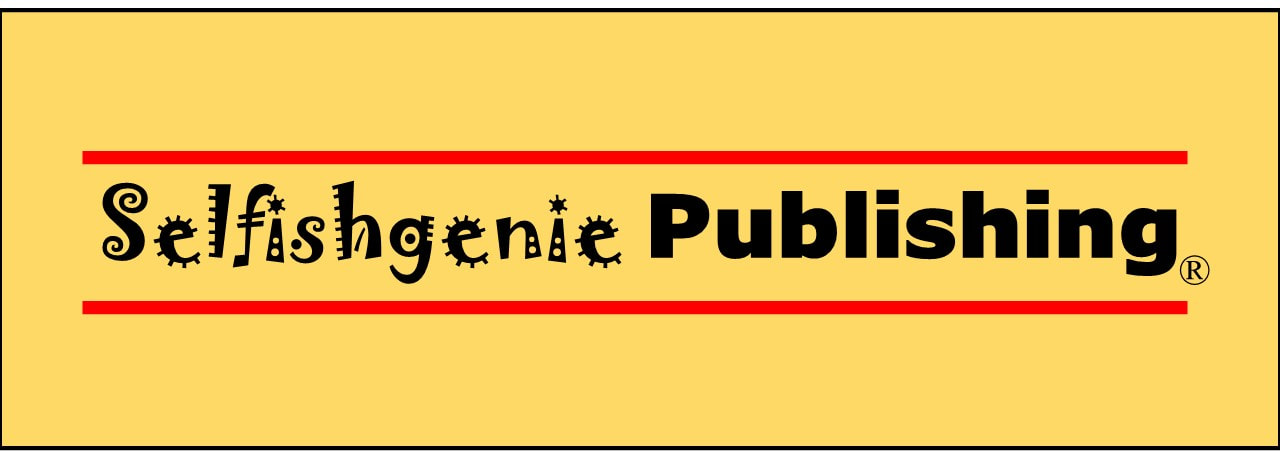
 RSS Feed
RSS Feed